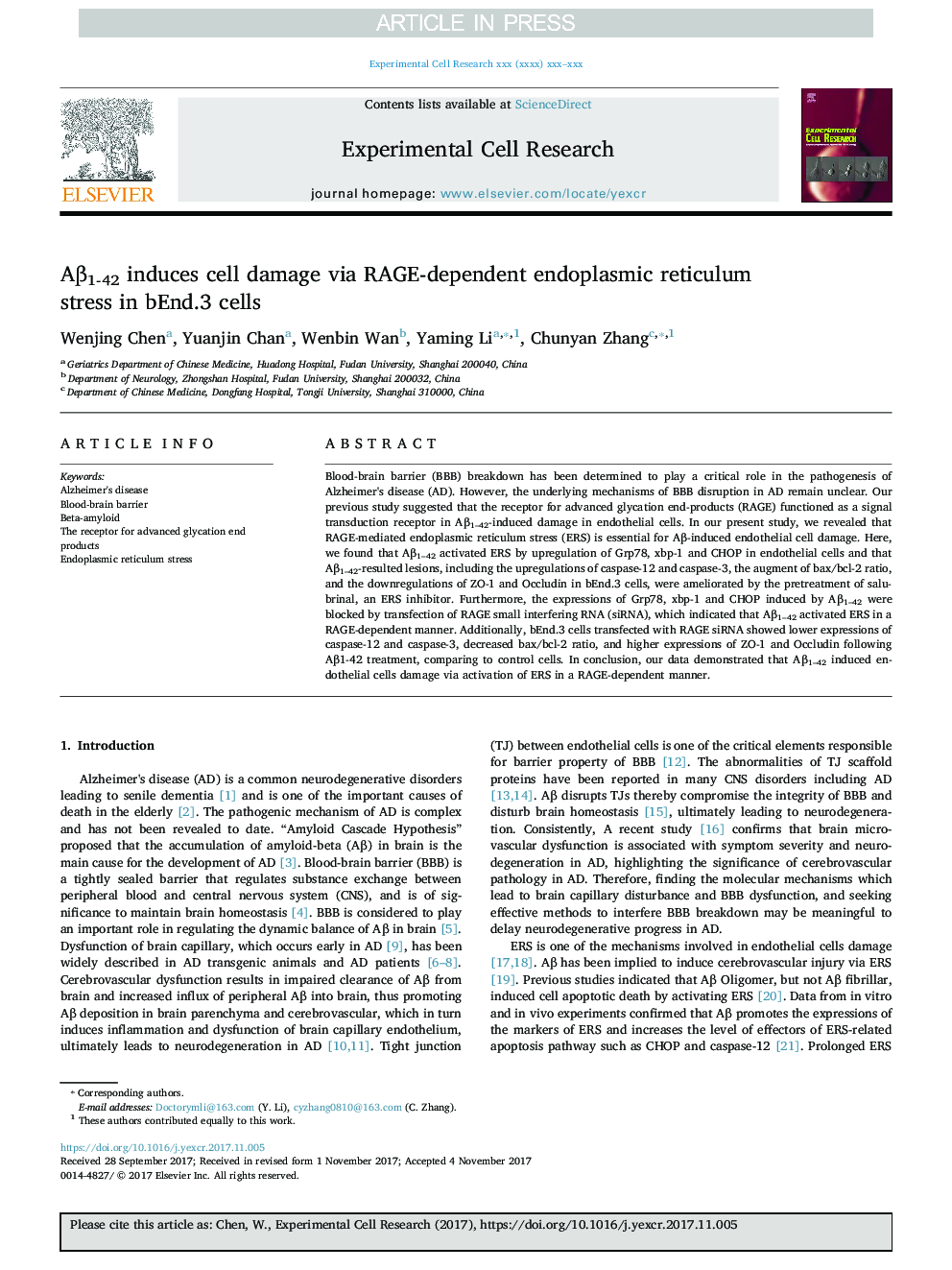| Article ID | Journal | Published Year | Pages | File Type |
|---|---|---|---|---|
| 8451613 | Experimental Cell Research | 2018 | 7 Pages |
Abstract
Blood-brain barrier (BBB) breakdown has been determined to play a critical role in the pathogenesis of Alzheimer's disease (AD). However, the underlying mechanisms of BBB disruption in AD remain unclear. Our previous study suggested that the receptor for advanced glycation end-products (RAGE) functioned as a signal transduction receptor in Aβ1-42-induced damage in endothelial cells. In our present study, we revealed that RAGE-mediated endoplasmic reticulum stress (ERS) is essential for Aβ-induced endothelial cell damage. Here, we found that Aβ1-42 activated ERS by upregulation of Grp78, xbp-1 and CHOP in endothelial cells and that Aβ1-42-resulted lesions, including the upregulations of caspase-12 and caspase-3, the augment of bax/bcl-2 ratio, and the downregulations of ZO-1 and Occludin in bEnd.3 cells, were ameliorated by the pretreatment of salubrinal, an ERS inhibitor. Furthermore, the expressions of Grp78, xbp-1 and CHOP induced by Aβ1-42 were blocked by transfection of RAGE small interfering RNA (siRNA), which indicated that Aβ1-42 activated ERS in a RAGE-dependent manner. Additionally, bEnd.3 cells transfected with RAGE siRNA showed lower expressions of caspase-12 and caspase-3, decreased bax/bcl-2 ratio, and higher expressions of ZO-1 and Occludin following Aβ1-42 treatment, comparing to control cells. In conclusion, our data demonstrated that Aβ1-42 induced endothelial cells damage via activation of ERS in a RAGE-dependent manner.
Keywords
Related Topics
Life Sciences
Biochemistry, Genetics and Molecular Biology
Cancer Research
Authors
Wenjing Chen, Yuanjin Chan, Wenbin Wan, Yaming Li, Chunyan Zhang,
